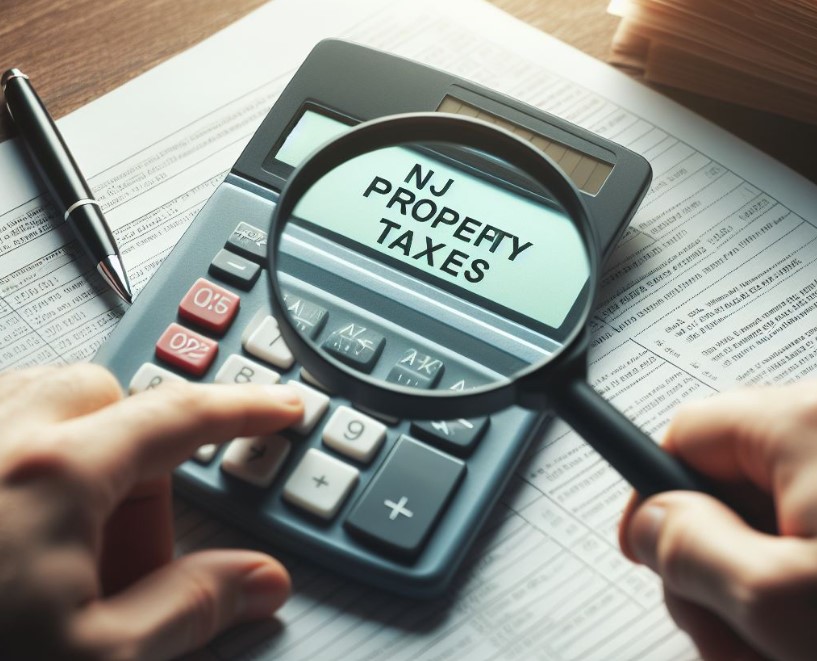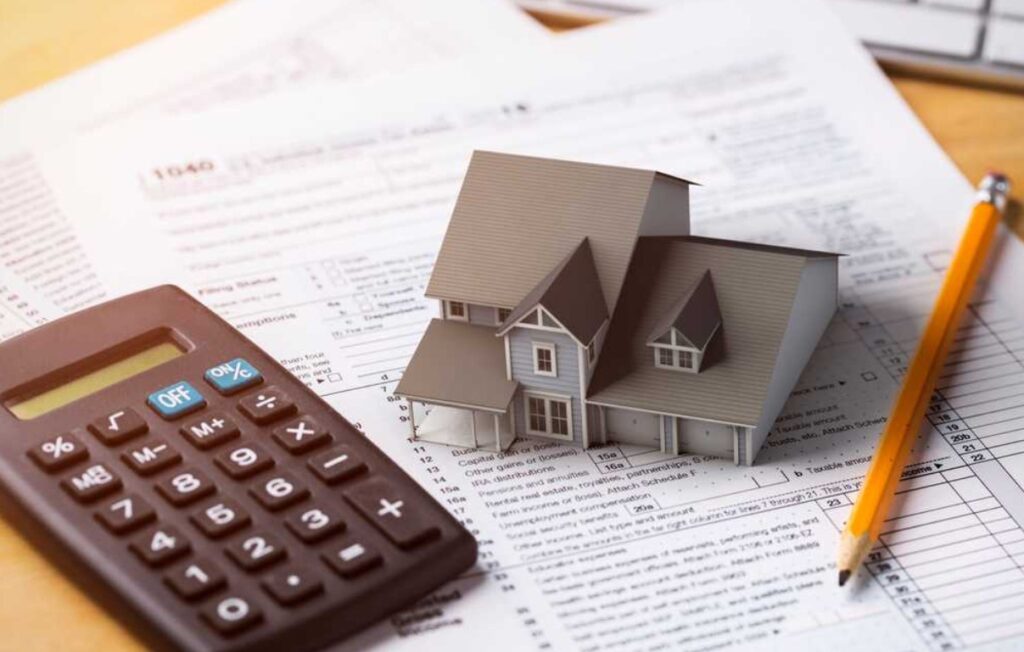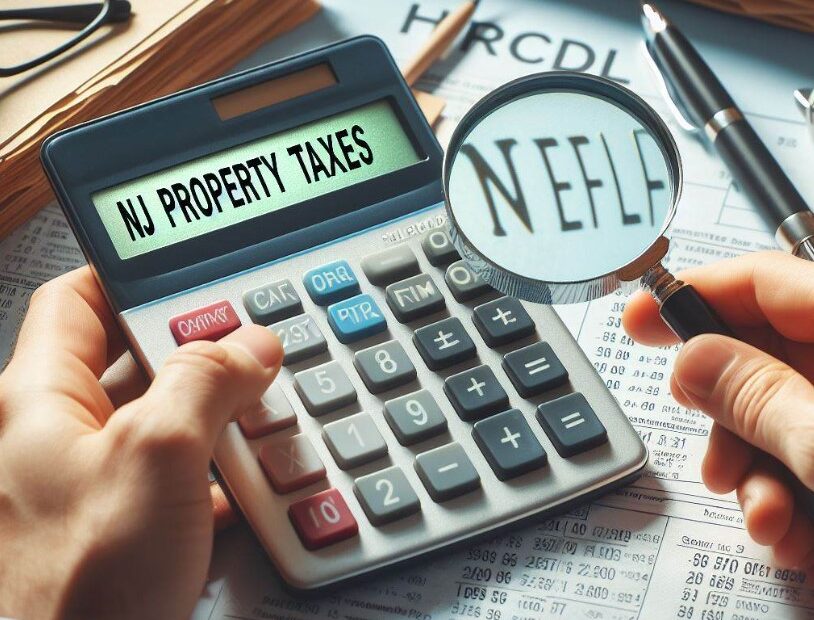Understanding How Are Property Taxes Calculated In NJ? is crucial for homeowners and potential property buyers in New Jersey. The process involves several factors, including property assessment, tax rates, and local government policies.
Key Takeaways
- Property taxes in NJ are based on the assessed value of the property.
- Local tax rates and county tax rates influence the overall tax amount.
- Tax assessments are updated periodically to reflect current property values.
- Homestead Benefit and Senior Freeze are two relief programs available.
- Property tax appeals can be filed if the assessed value is believed to be inaccurate.
How Are Property Taxes Calculated In NJ?
Calculating property taxes in New Jersey (NJ) involves a multi-step process that combines property assessment, tax rate determination, and the application of any applicable tax relief programs. Here’s a detailed breakdown of each step:

1. Assessment of Property Value
- Initial Assessment: When a property is first assessed, a local tax assessor evaluates its value. This assessment is supposed to reflect the property’s fair market value.
- Factors Considered: Assessors consider the property’s size, location, condition, improvements, and the sale prices of similar properties in the area.
- Periodic Revaluation: NJ law requires periodic revaluation of properties to ensure that assessments reflect current market values. The frequency of these reassessments varies by municipality.
2. Determination of the Tax Rate
- Setting the Tax Rate: The local tax rate, also known as the millage rate, is set by each municipality. This rate is determined based on the total budget needed for local services, schools, and county expenses.
- Calculating the Rate: The rate is calculated by dividing the total budget by the total assessed value of all taxable property in the municipality. It is usually expressed as a rate per $100 of assessed value.
3. Calculation of Property Tax Owed
- Applying the Tax Rate: To calculate the actual tax owed, the assessed value of your property is multiplied by the tax rate. For example, if a home is assessed at $300,000 and the tax rate is $2.50 per $100 of assessed value, the property tax owed would be $7,500 annually.
- Breakdown of Tax Bill: Your tax bill typically includes not just municipal taxes, but also county taxes and school district taxes, all calculated using their respective rates.
4. Tax Bills and Payment Schedules
- Issuing Tax Bills: Property tax bills in NJ are generally issued every quarter.
- Payment Deadlines: Homeowners are required to pay their property taxes by the deadlines indicated on the tax bills to avoid late fees and interest charges.
5. Tax Relief Programs
- Homestead Benefit Program: This program provides tax relief to eligible homeowners, reducing their tax liability.
- Senior Freeze (Property Tax Reimbursement): This program reimburses eligible senior citizens and disabled persons for the difference between the amount of property taxes paid in the base year and the current tax year.
6. Appeals Process
- Filing an Appeal: If a homeowner believes their property’s assessed value is inaccurate, they can file an appeal with the county tax board.
- Supporting Evidence: The appeal must be supported by evidence such as recent sales of comparable properties or discrepancies in the assessment.
7. Adjustments and Modifications
- Annual Adjustments: Tax rates and assessments may be adjusted annually to reflect changes in municipal budgets and property values.
- Impact of Home Improvements: Significant improvements to a property can lead to a reassessment, potentially increasing the property’s assessed value and, consequently, the tax owed.
Factors Affecting Property Tax Calculation
- Assessment of Property Value: The foundation of property tax calculation is the assessed value of your property. In New Jersey, a local tax assessor determines this value, which ideally reflects the market value of the property.
- Local Tax Rate: After the property’s assessment, the local tax rate, set by municipal authorities, is applied. This rate varies across different municipalities and is subject to change annually.
- County and School Taxes: Besides the municipal tax, property owners in NJ also pay county taxes and school district taxes, which are included in the total property tax bill.
Understanding the Assessment Process
The assessment process in New Jersey aims to estimate the market value of a property. This process is conducted periodically to ensure that the assessment remains in line with the current market conditions.
- Assessment Periodicity: New Jersey mandates a reassessment or revaluation of properties every few years to keep the tax burden equitable across all property owners.
- Factors in Assessment: Assessors consider various factors, including property size, age, location, and improvements made, to arrive at an accurate assessed value.
Calculation Methodology
To calculate the property tax, the assessed property value is multiplied by the local tax rate. For instance, if a property is valued at $300,000 and the local tax rate is 2.5%, the annual property tax would be $7,500.

- Formula for Calculation: The formula for calculating property taxes in NJ is Tax = Assessed Value × Tax Rate.
- Example Calculations: Examples with varying property values and tax rates can help homeowners understand their potential tax liabilities.
Property Tax Rates in NJ
Property tax rates in NJ vary significantly across different counties and municipalities. These rates are determined based on the budgetary needs of the local government and school districts.
- Variation in Tax Rates: Some areas in NJ have higher tax rates due to higher expenses in local government and schools.
- How Rates Are Set: Local governments set tax rates based on their budget needs, divided by the total assessed value of all properties in the jurisdiction.
Comparison Across Counties
A comparison of property tax rates across different counties in NJ can provide a clearer picture of the varying tax burdens faced by homeowners.
- Highest and Lowest Tax Rates: Identifying counties with the highest and lowest tax rates can guide potential property buyers.
- Impact on Property Values: The tax rate can significantly impact property values, as higher taxes might deter buyers.
Tax Relief Programs
New Jersey offers several tax relief programs to alleviate the burden on certain homeowners, like seniors, veterans, and low-income households.
- Homestead Benefit Program: This program provides property tax relief to qualified homeowners, including seniors and disabled individuals.
- Senior Freeze (Property Tax Reimbursement): Aimed at senior citizens and disabled individuals, this program reimburses the difference between the amount of property taxes paid in the base year and the amount paid in the current year.
Eligibility and Application Process
Understanding the eligibility criteria and application process for these programs is essential for homeowners seeking tax relief.
- Requirements for Eligibility: Each program has specific eligibility requirements, such as income limits and residency requirements.
- How to Apply: Detailed information on how to apply for these programs, including deadlines and required documentation.
Appeals and Disputes
Homeowners who disagree with their property’s assessed value can file an appeal with the county tax board.
- Grounds for Appeal: Valid reasons for appealing include discrepancies in the assessed value compared to similar properties or recent sales data.
- Appeal Process: A step-by-step guide on how to file an appeal, including deadlines and necessary documentation.
Impact of Property Improvements on Taxes
Enhancements and renovations can significantly affect the assessed value of a property, subsequently altering the property tax obligations.

The Role of Home Improvements in Assessment
- Increases in Assessed Value: Upgrades like kitchen renovations, additions, or substantial landscaping can increase a property’s market value, leading to a higher assessed value.
- Reporting Improvements: Homeowners need to report any significant improvements to the local assessor, as these can impact property tax calculations.
How Renovations Affect Tax Bills?
- Short-term vs. Long-term Impact: While improvements can lead to an increase in property taxes, they may also enhance the property’s resale value, offering long-term financial benefits.
- Understanding the Assessment Increase: Homeowners should be aware of how much their tax bill might increase following significant renovations to plan their finances accordingly.
The Role of Municipal Services in Property Taxes
The level and quality of municipal services in an area are directly reflected in the property tax rates.
Funding Local Services Through Taxes
- Allocation of Tax Revenue: A significant portion of property taxes is allocated to local services like public safety, infrastructure, and community programs.
- Correlation Between Services and Tax Rates: Typically, areas with more comprehensive services tend to have higher property tax rates.
Impact on Property Values
- Desirability and Tax Rates: Regions with better services often see higher property values due to increased desirability.
- Balancing Tax Rates and Services: Municipalities must balance providing quality services with maintaining reasonable tax rates to avoid deterring potential homeowners.
Economic Factors Influencing Property Taxes
The broader economic environment can have a substantial impact on property taxes in NJ.

Market Conditions and Property Taxes
- Effect of Housing Market Fluctuations: In a booming real estate market, property values – and consequently, property taxes – can rise significantly.
- Recession and Tax Adjustments: Conversely, during economic downturns, declining property values can lead to reduced tax assessments and lower tax bills.
State and Local Fiscal Policies
- Budget Constraints and Tax Rates: Economic challenges at the state and local levels can lead to increased tax rates to cover budget shortfalls.
- Policy Changes Affecting Taxes: Legislative changes at the state level can lead to adjustments in property tax calculations and rates.
Role of Education Funding in Property Taxes
A significant portion of property taxes in NJ is directed towards funding public education.
School Budgets and Tax Rates
- Proportion of Taxes for Schools: In many NJ municipalities, a large share of property taxes goes towards public schools.
- School District Quality and Tax Impact: High-quality school districts often have higher property tax rates but can also lead to increased property values.
Understanding School Tax Levies
- Calculation of School Taxes: The school tax is a component of the overall property tax bill, based on the budgetary needs of the school district.
- Voter Influence on School Budgets: In some cases, residents may have a say in school budget approvals, which can impact the tax rates.
Conclusion
Understanding how property taxes are calculated in NJ is vital for effective financial planning and managing homeownership costs. The combination of property assessments, local tax rates, and available relief programs defines the property tax landscape in New Jersey.
Homeowners should remain informed and proactive in managing their property taxes, ensuring they are accurately assessed, and taking advantage of available relief programs when eligible.
People Also Ask
What happens if I don’t pay my property taxes in NJ?
Failing to pay property taxes in NJ can lead to serious consequences. Initially, late payments accrue interest. If taxes remain unpaid, the municipality can place a lien on the property. In extreme cases, this can lead to a tax sale, where the lien is sold to a third party, and the homeowner can risk losing their property.
How are school taxes calculated and used in NJ?
School taxes are a part of your total property tax bill and are calculated based on the budgetary needs of the school district. These taxes fund local public schools, covering expenses like teacher salaries, facilities, and educational programs. The amount varies depending on the district’s budget and the total assessed value of properties within the district.
What is the process for paying property taxes in NJ?
Property taxes in NJ are typically paid quarterly. Homeowners receive tax bills directly from their local tax collector. Payments can be made by mail, in person, or sometimes online, depending on the municipality’s facilities. Late payments are subject to interest charges.
How do economic factors impact property taxes in NJ?
Economic factors like housing market conditions and state and local fiscal policies can significantly impact property taxes. A booming real estate market can increase property values and taxes, while a recession might lead to lower assessments and taxes. State budget constraints can also influence tax rates.
A multifaceted professional, Muhammad Daim seamlessly blends his expertise as an accountant at a local agency with his prowess in digital marketing. With a keen eye for financial details and a modern approach to online strategies, Daim offers invaluable financial advice rooted in years of experience. His unique combination of skills positions him at the intersection of traditional finance and the evolving digital landscape, making him a sought-after expert in both domains. Whether it’s navigating the intricacies of financial statements or crafting impactful digital marketing campaigns, Daim’s holistic approach ensures that his clients receive comprehensive solutions tailored to their needs.









